

belikewater
-
Content Count
25 -
Joined
-
Last visited
Posts posted by belikewater
-
-
-
How far out are you from surgery? Are you at you goal weight? I am body building and trail running, am 16 months post vsg and down 38kg (under the goal weight set by my surgeon). I eat around 1000 - 1200 calories and generally maintain my weight, if it starts dropping I ease up on the training and add some extra Protein.
I'm careful not to stretch my sleeve with big meals, and add some extra carbs if I'm trail running hard/hills/more than 10km.
I think it really depends where you are in your weightloss journey
-
I'm sure you will find it so much easier once you lose weight 😊 I was impatient to get back to training but looking back, it was probably 4 months post surgery before I felt like I could go hard, before that I walked, did lighter stuff etc. After that I just felt better and better. You will work out what you need to eat to train, and there are some awesome knowledgeable peeps on this site.
ace090 reacted to this -
I'm not quite your stats but fairly close, am 164cm and was 101.4kg when I had vsg 9 months ago. Because I was considered low BMI for surgery I wasn't able to get it on public funding had to pay privately (I'm in Southern Hemisphere). I'm down 34.5kg so far, would like to lose another 3-5kg, best money I ever spent. I am back to training heaps, lifting heavy and running, loving life. I'm also nearly 47 years old. It's a big decision to make, and not always easy at times, but can totally turn your life around ☺️
-
Finally managing to get enough calories in to see some gains 😂😂 most days I'm around 1200 calories sometimes up to 1500....I have a lot of discomfort eating more than about half a cup of food, so basically eat all day! I cant keep Protein Shakes down so that sucks (my surgeon mentioned dilating my sleeve...ahhh no chance lol). I'm 9 months out from vsg and 34.5kg lighter. Would like to lose another 3-5kg of fat then focus on gaining more muscle (fill out my spare skin with some!). My bench is up to 50kg (used to be 70kg) and deadlift at 90kg (was 120kg+) so is a slow road, am also nearly 47 years old so that not helping 😄😄 have added in Olly lifting for fun, and managed to box jump 75cm (30 inches) which felt great (did 40 reps just cause so happy I could but wow my calves on fire the next day lol). So this year my goal is to bench more than I weigh, and squat and deadlift 1.5 x my weight. I'm stuck on a 45kg clean and jerk but I think that is all mental cause I know I can lift more than that. Anyway, love reading your posts, hi from New Zealand 😀
-
6 hours ago, nenes78 said:That is awesome!!! Great job 😄😄😄
nenes78 reacted to this -
16 hours ago, NurseMichael said:Oh my....finally......i have found my people!!!!!
So... i had surgery in 2016 (sleeve). Went from 356 to 179. At 179 my doc told me to hit the gym (probably 8 months post). I too found the guru that is Jim Stoppani and started following his programs. I started putting on weight and got terrified. I added 30lbs!!! But wait....my waitsline didnt change...WOOHOO!!!
So yes, i doo agree that dieticians and nutritionists have no idea what to do with those of us who train for strength but have a physical nutritional restriction. So thats where we have to help each other! Since surgery i have run over 10 obstacle course races (Spartan, Tough Mudder, etc) of lengths from 3 miles to 13 miles. I also participated in my first half marathon.
But now....I am a powerlifter!!! My lifts currently are bench-215, Squat-315, DL-405. I eat a ton!!! 3000 cal a day. Its a job in and of itself as i probably eat 7 meals a day as well as supplementation with shakes. Its not easy, but to build the size and strength i need, its neccessary.
We should totally start a group for bariatric lifters / bodybuilders.
Is so weird to have surgery to restrict eating, to then need to increase eating for training 😆😆 I lifted something easily that weighed more than me the other day, seriously broke out the happy dance, my trainer looked at me sideways lol only a former big person could get how freaky that is.... certainly couldn't lift anything heavier than myself a year ago!!
-
-
I had bmi of 37, 164cm and 101.4kg. 6 and half months out I have bmi of 26, weigh 70kg and feel fantastic. I couldn't get enough Protein in as Protein Drinks made me sick and had a lot of Hair loss (but did after my babies too), it's all growing back now, I have short hairs all over my head 😂 I'm good about taking my Vitamins, cod liver oil and extra magnesium.
I'm so glad I had the surgery 😁😁
-
I was nearly 4 months out until I was back serious lifting, before that I focused on fitness and mobility and light free weights (I have a significant background in lifting) . It takes a while to work out how to get the right combination of calories in for good post workout recovery and I still end up burning from half to all the calories I eat each day so at the moment I'm maintaining the muscle I have left rather than building more although strength is slowly getting better. I lost quite a bit of muscle in those first 3 months post op especially as I couldn't tolerate Protein Drinks.
Just listen to your body, take plenty of recovery days and concentrate on good quality nutrition 😁
-
On 2/22/2019 at 5:30 AM, nenes78 said:I am almost one year out of surgery. Besides the gym I wanted to try something new. I was looking at yoga or Tai Chi, both that have been recommended to me.
Over the last few years I have seen videos on YouTube and social media about DDP Yoga. After watching some videos with my wife last week, we decided to purchase the program and give it a try. So far we like it and have been impressed. I’m only in the first week, but already my back feels better and can now stretch farther than day one. And DDP is entertaining and very motivating to follow. Like Diamond Dallas says 'It Ain't Your Mama's Yoga’.We have recently found DDP yoga and love it! My back and hips already feeling so much better 😀😀
nenes78 reacted to this -
Hahahaha there is a name for how I run....slow jogging!!!! In my head it is much much faster.... 🤣🤣🤣
Ninjamom2019 reacted to this -
Wow you're looking great, what a transformation already 😁😁
I found (and still do) Water really hard to drink, even though before surgery I was a big water drinker (only thing I drank apart from coffee). These days it just 'bounces back up'! What I've found works is adding some low calorie lemon and barley, or orange and barley cordial to my water, i make it really weak and it does the trick. Really important as I train a fair bit. I'm going to keep persevering with water as I don't want to keep having artificial sweeteners.
-
Great you can drink Protein, I can't keep it down but am experimenting with different brands to see if I can find something that works. I can't physically get more that about 1000-1100 calories in so is limiting my progress but I'm hoping to at least maintain what I've got until I can eat more. I'm trying to balance getting protein in but also carbs as I trail run as well and find complex carbs like oats the best for this.
I've also started training with a heart rate monitor and I take longer rests between sets if need be for my heart rate to drop to see if this helps with the on-going fatigue.
Do you use pre-workout? I'm keen to go back to using vasodilator but my dietician isn't sure if this will cause problems with the high dose caffeine (I do drink coffee daily with no probs)
Hope your rest week does the trick, is hard to be patient when you're ready to get back into it! 😆
PWMDMD reacted to this -
Hi, I had my surgery in September 2018 too, back lifting heavy-ish but can't get enough calories or Protein in so the gains are slow (I'm female, lost 31kg, basically at goal). I lost a lot of strength post op, down a good 20kg or more on squat, bench and deadlift, and I do a bit of Olly lifting for fun but don't have the endurance or explosive power I had. Are you taking supplements at all? I've not been brave enough to go back to anything except magnesium (my gut is dodgy) but am wanting to see how I cope with creatine and amino acids but need to up protein first.
My dietician wasn't able to help me much beyond train less!! She also suggested I make sure I eat low inflammatory foods to help with recovery and over training.
Would love to know what other lifters have found works.
-
I've drunk coffee from fairly early on, I can't tolerate Protein Drinks, but coffee and Decaf is how I get half my Fluid in every day. I just use instant, with boiling Water and skim milk, I count the calories of the milk as one of my meals. I'm over 6 months out now, occasionally I'll buy a 'proper' coffee if I'm out but sometimes that will turn my stomach. My surgeon said coffee was fine, guess all surgeons different 🥴
DWentz reacted to this -
Mousecat88 my diet is very similar, I'm 6.5 months out. The first couple of mouthfuls I eat each meal cause discomfort, and I can't eat more than about a quarter to a third of a cup. I try and eat 5-6 times a day plus a cup of low fat milk with my coffees. I get nausea quite easily and lots of foods just won't 'go in', like rice, Pasta, most meat (chicken is ok). My surgeon mentioned dilating my sleeve but heck no!! I've started adding in 3-4 small Water crackers with some cheese, and oats with blueberries. I've increased my carbs as I train heavily most days, sometimes twice a day (weight lifting and trail running) so am burning a lot of what I eat and I struggle to get Protein in. I've started eating haloumi cheese (good protein) with a cooked Tomato on the side, and nuts and seeds. I can't tolerate Protein Powder or drinks at all. Is a lot of trial and error but is totally worth it, I'm so pleased with my weight loss 😊😊
mousecat88 reacted to this -
-
Keep at your Dr as dehydration is awful. I too found warm liquids much better, and salty/savoury flavours like Soup. I couldn't tolerate Protein Drinks and still can't 6 months out (I get foamies and throw up). Try and relax, when I'm upset or stressed nothing goes in to my sleeve! Powerade was great as once my electrolytes got sorted then I felt less sick and was able to drink more. It truly does get better!! But definitely get medical help if it doesn't come right soon.
FluffyChix reacted to this -
I was sleeved 27 September last year at 224 pounds and I'm now 156. It is slow and steady, I lose a pound then stay the same for several days, lose for a few days in a row then stay the same for a week. But is still regularly dropping, I'm 5'4 and looking to get around 140. I'm really happy with 68 pounds in 6.5 months 😁 I exercise a fair bit, so have had to learn how to fuel my body, if I burn as much as I eat my weight loss stalls, and after a really heavy lifting day I will 'gain' but it is Water weight from inflammation and settles in a couple of days. I fly a lot for work and this seems to make me hold water too so have have a good 'loss' once I've been home a couple of days.
All the best, this is the best thing I've ever done, I'm glad I did it before I got any bigger as my weight was really stopping me living my best life 😊
-
This is a wonderful - stories like this are such a great example of why our surgeries give us our life back
 I'm so happy for you
I'm so happy for you  ProudGrammy reacted to this
ProudGrammy reacted to this -
New to this forum and it's great! Just have to share how happy I am that this years full length training/running tights (is Autumn here in Southern Hemisphere) are HIGH WAISTED! I did a happy dance in the changing room - finally, something to hold the saggy jelly belly skin in to prevent the slapping! Last time I bought running tights they had these really low waist bands that barely covered that which should be covered, and after 5 steps my belly would break free and the tights would roll down and let the good times show!
-
On 1/25/2019 at 8:57 AM, SteveT74 said:What you are experiencing is totally normal and should be expected. If you start a diet/lifestyle and don't incorporate exercise in that new lifestyle, you can lose plenty of weight with diet alone (with or without bariatric surgery). The moment you change your lifestyle habits by adding in what sounds like a new and reasonably intensive exercise regimen, you're going to probably experience what appears to stall or slow down in weight loss. Your body will begin to increase your volume and percentage of skeletal muscle--which is a good thing. Muscle burns calories at rest, which enhances your metabolism even when you're not at the gym. At the same time, muscle is more dense than fat. You can lose inches by adding muscle, but your total weight stays the same (depending on the rate that you burn through your fat reserves). In the beginning of your new exercise regime, you may initially gain muscle faster than you lose excess fat. This could look like a gain or stall on your scale, since a regular scale only tells you how much you weigh--without distinguishing fat from muscle or considering body composition. If you have a good BIA scale or invest in something like an Omron Body Fat Monitor (Omron HBF-306C Body Fat Monitor) you'll see a change in your body composition over the course of a few weeks of moderate to intense training (with a drop in body fat % and increase in skeletal muscle). As long as your body fat is dropping and your muscle mass is increasing, you're making progress in your weight loss journey. After a few weeks, you'll see the scale drop as your body (including your new muscle tissue) needs to burn more calories to meet your daily requirements and turns to fat tissue to get the job done (provided you are sticking closely to your diet).
Here's a tip--never fall into the trap of thinking that because you're hitting the gym, you can eat more calories--that's how you get into a true stall or end up gaining weight. Adding calories with exercise only applies to certain types of athletes and bodybuilders (which should exclude pretty much everyone on this forum--myself included!!).
Another tip is to keep your cardio to a reasonable amount, but don't over do it. Most experts and trainers would advise that a non-athlete do no more than an hour of cardio a day at a moderate to reasonably intense level (spending most of your cardio time getting your heart rate into zone 3 or 4 (your BPM changes with age, so you should look into this for yourself using this Target Heart Rate Chart. Also, you may want to increase your weight training from 2 days a week to 4. Even better, you might want to try doing something like a boot camp class or orange theory, which combine weight training and cardio into a one hour class so you're doing both at the same time. This is called High Intensity Interval Training (HIIT) and it's probably the most effective and time efficient way to get fit (and lose weight). Don't let the name scare you, what's high intensity is always relative to your age and fitness level so anyone can do it.
[P.S. I worked as a certified personal trainer for about 4.5 years when I was in my 20's--seems like a lifetime ago. I know what to do, just haven't been doing the right things for myself for a long time!].
This is far and away the best explanation I've read about what happens when you add exercise to life after weight loss surgery. I too used to be a PT 😊 (talk about do as I say and not what I do!!) and I'm 6 months post vsg and training hard. You would think I would know why I weigh basically the same but have dropped a dress size this past month, but the scales have done my head in. Reading your explanation has reminded me to be patient and let my body catch up!!
-
On 3/19/2019 at 7:10 AM, MG1776 said:I finished my first half marathon yesterday! Finished in 2:12. Had two packages of Stingers chews, Water, and nuun for hydration. I'm glad it's over as my hips and right knee are mad at me today! It was a beautiful day, and I was able to run with my wife, so it couldn't have gone better
Very very cool! I'm 6 months post vsg, 30kg down and so happy to be back into training - photos like yours keep me feeling inspired 😁
Healthy_life2 reacted to this


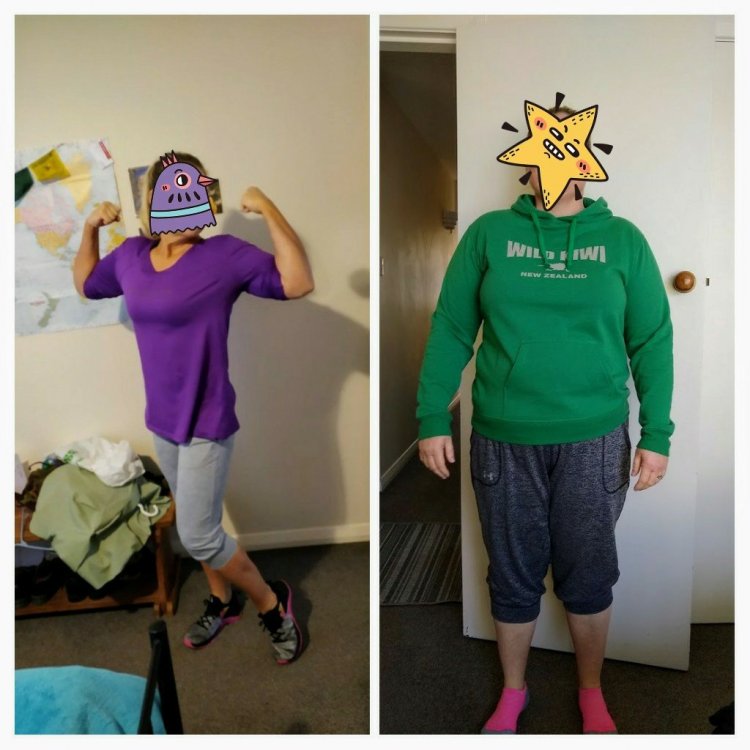
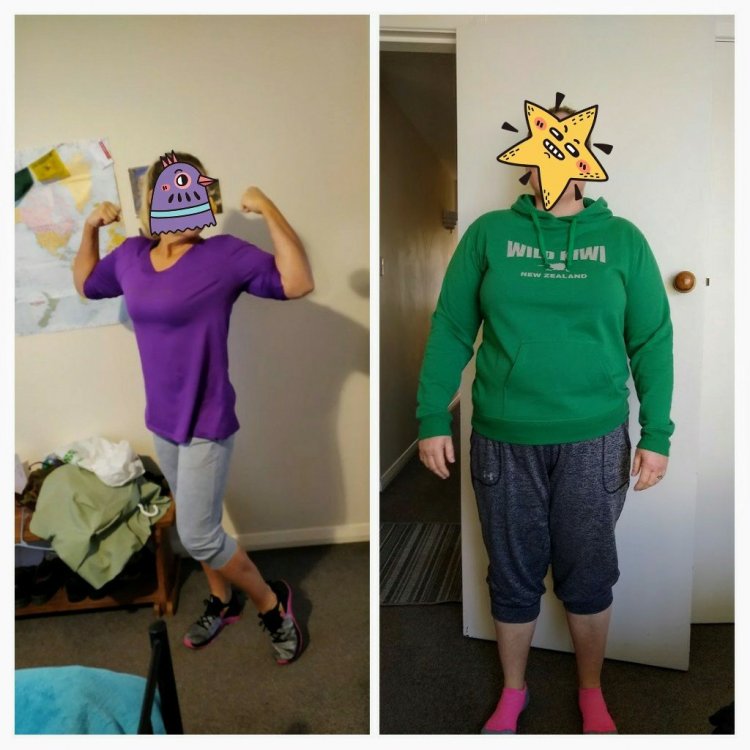

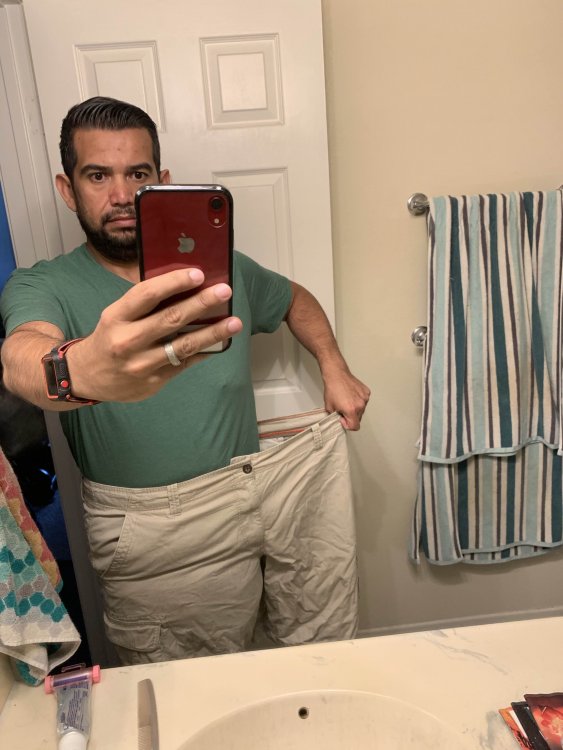
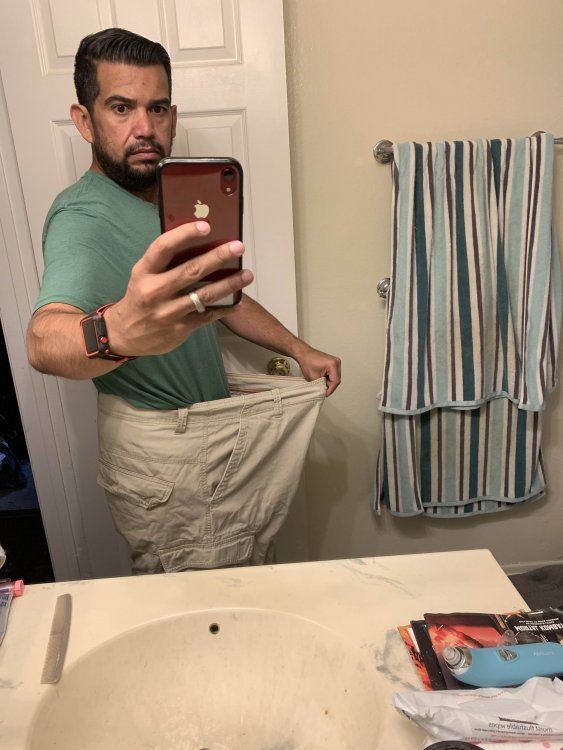
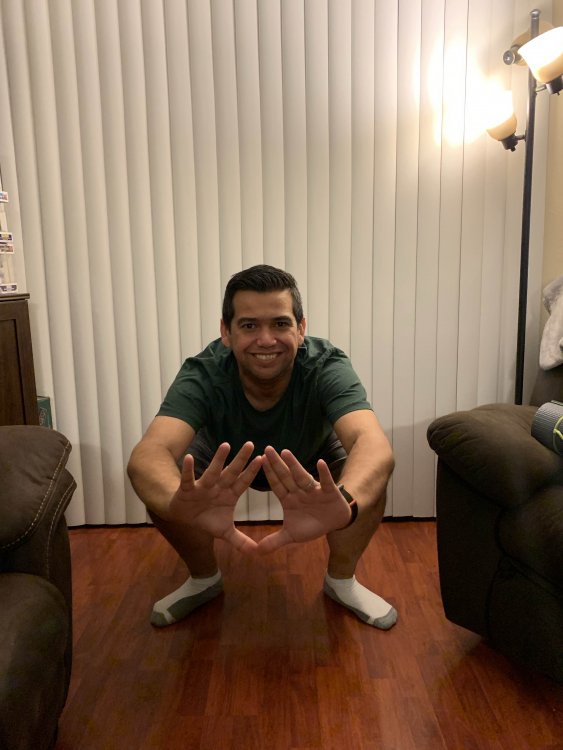

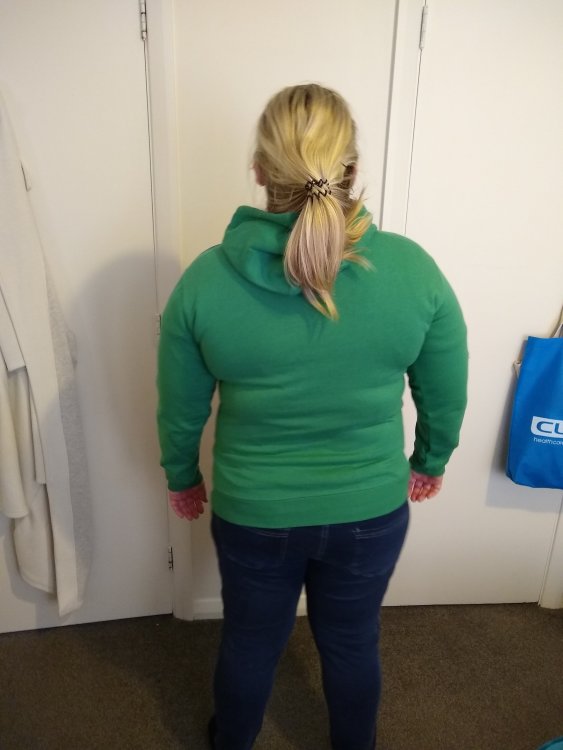
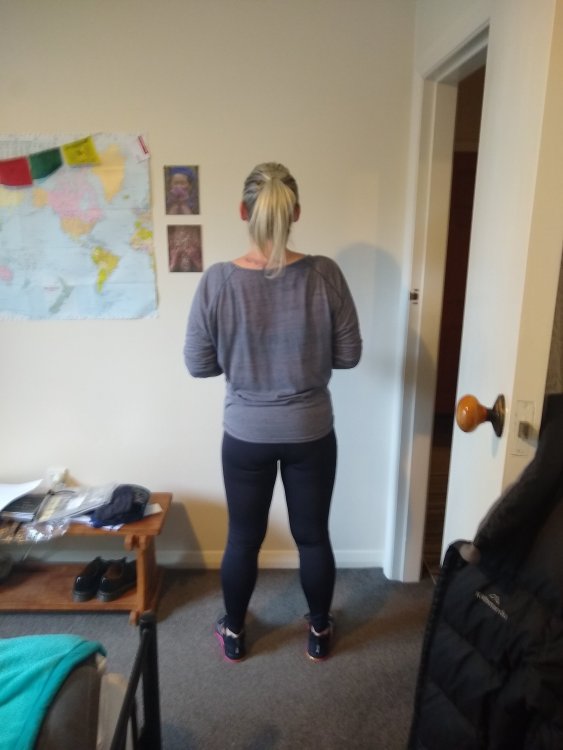

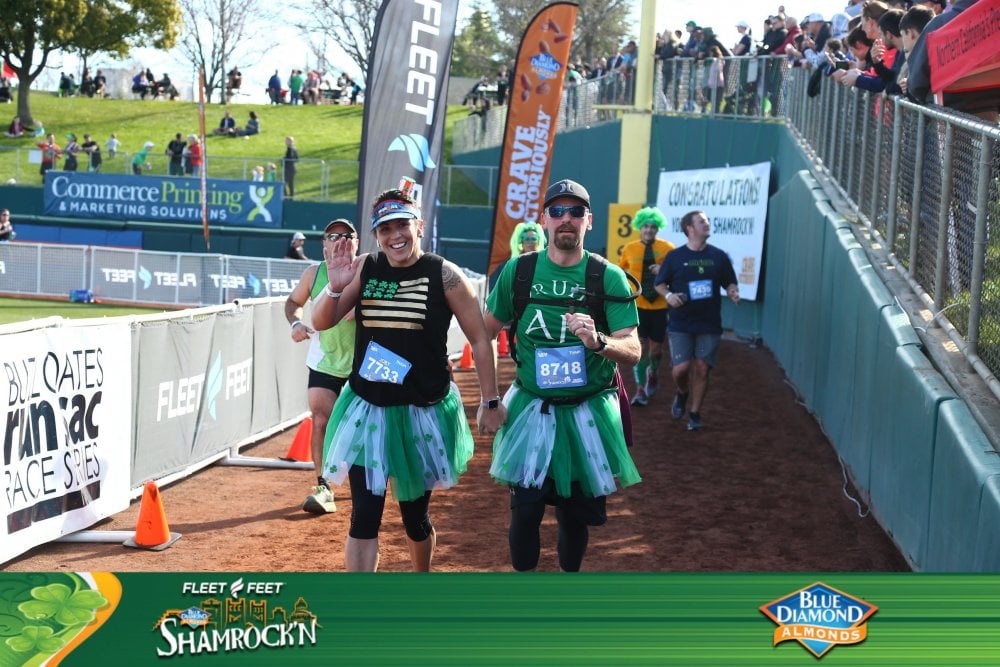
Question of lower BMI patients
in Gastric Sleeve Surgery Forums
Posted
I was 101kg day of surgery and 164cm, and 16 months later I'm 63kg, and I train a lot (body building and trail running) so have significantly more muscle than most 47 year old women (have background in fitness so it came back fairly quickly). But is very slow now to get any more off, would like to lose another 5kg.